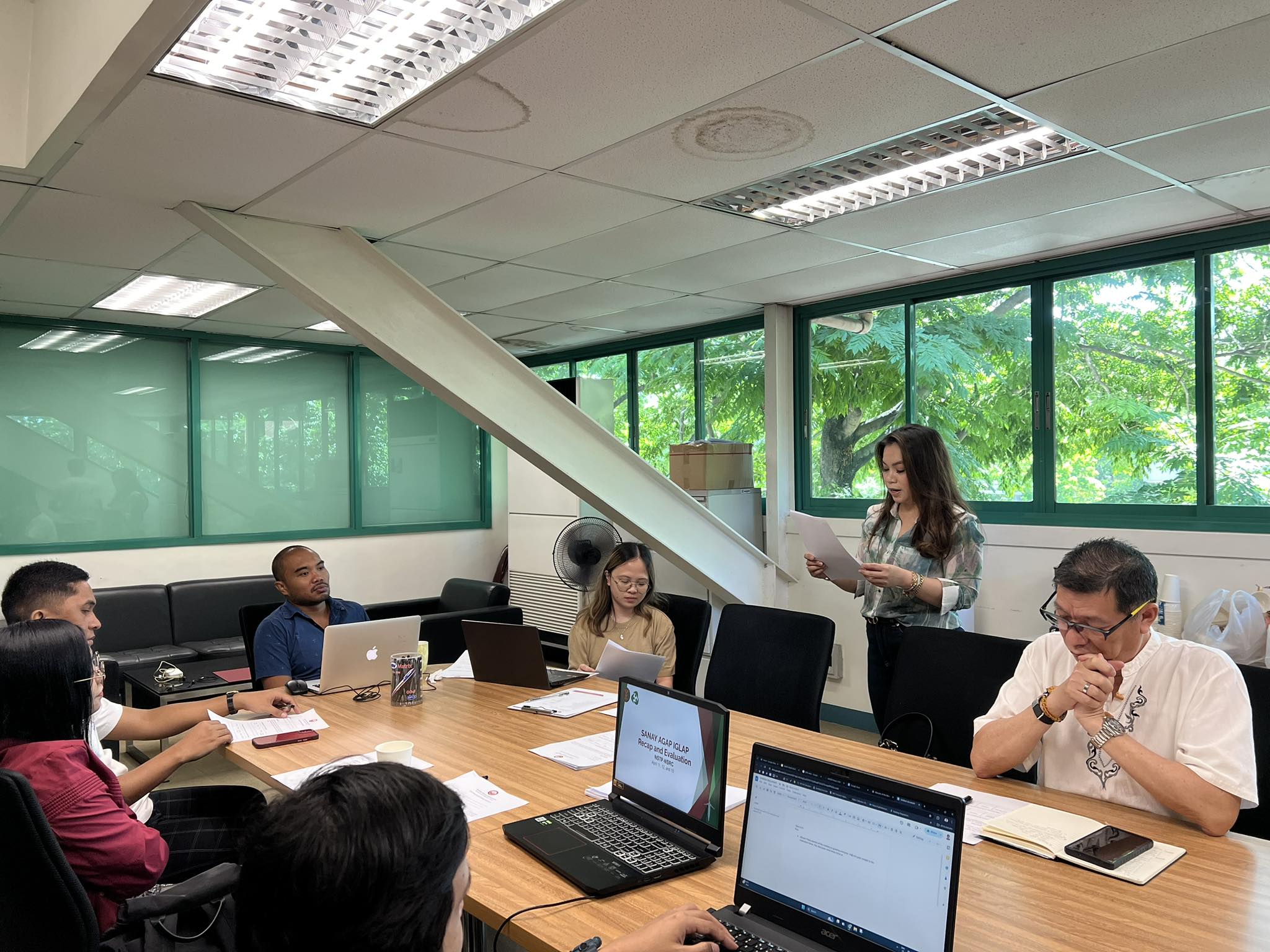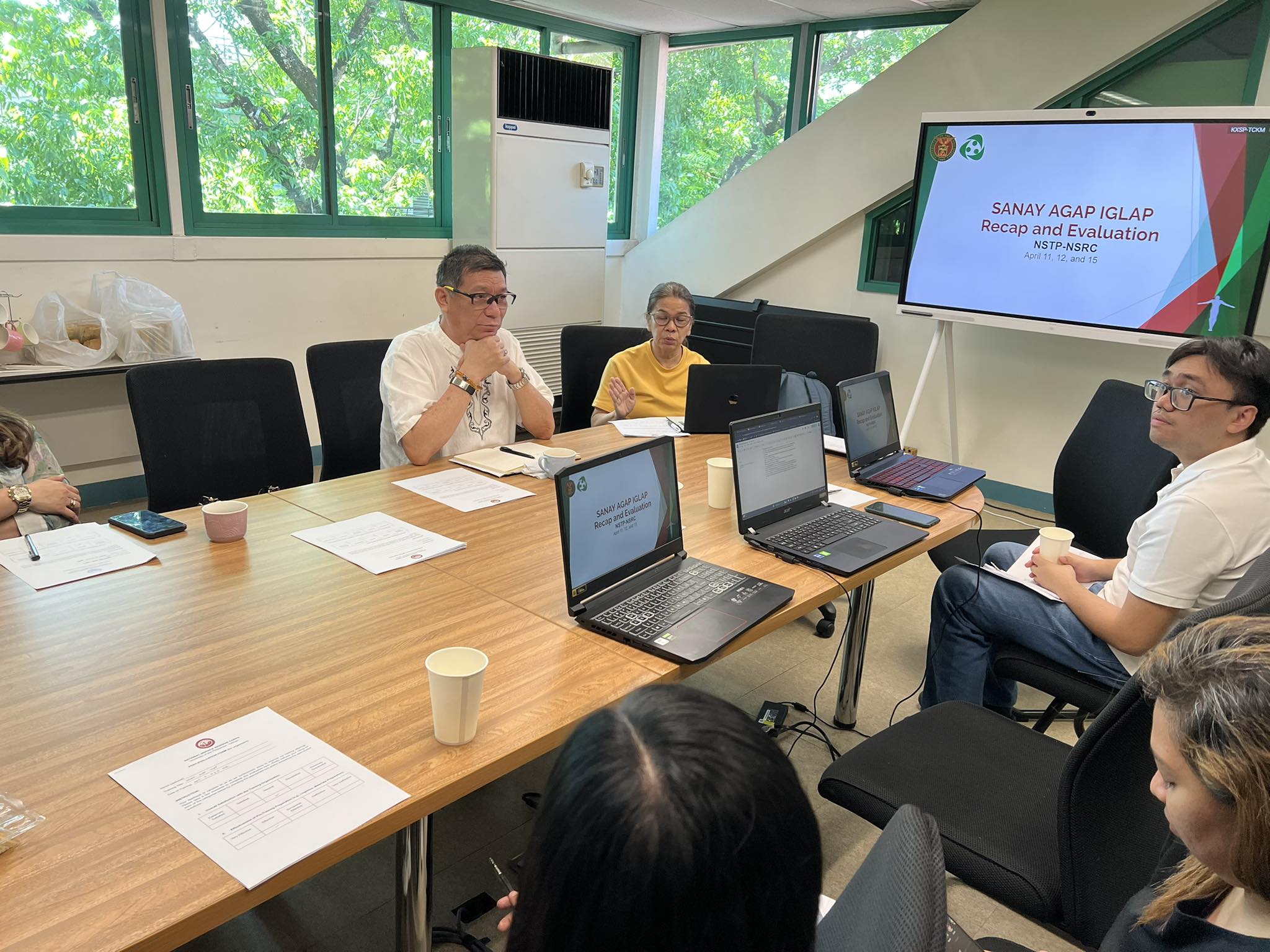On May 7, 2024, UP RI representatives Dr. Glecy Atienza (RCW Director), Jose Abraham Ongkiko (IB Chief Science Research Specialist), Jonathan David Maligalig (IB Junior Project Assistant), and Franklin Joshua Gali (IB Junior Project Assistant) attended a post-evaluation for the Sanay Agap Iglap pilot launch conducted last April 11, 12, and 15, 2024. Organized by the NSTP-NSRC, representatives Ramon Bandong Jr. and Aeda Tomie hosted the post-evaluation. Joining them were Gellie Flores (PSSO), Karl Villaluna (PSSO), and Karitha Ana Guerrero-Ordiz (OVCCA). The post-evaluation began with each attendee attending an evaluation form and sharing their insight.

Image 1: OVCCA representative Karitha Ana Guerrero-Ordiz beginning the evaluation sharing
After the round-table sharing, UPRI presented an in-depth recap and evaluation of the pilot. The general comments of participants and volunteers were highlighted in this presentation. In particular, four areas of interest were discussed: (1) which parts of the program were efficient in achieving our initial goals, (2) which parts were not efficient, (3) possible additions to the program, and (4) important lessons learned from conducting the pilot.
Included in this discussion were clarifications as to why adjustments were made for the schedule of activities. It was mentioned that difficulties arose due to changes with the participants involved. In line with these challenges faced, the group agreed that changes to the training design were needed for the next implementation of the program.

Image 2: UPRI presenting a detailed recap and evaluation of the Sanay Agap Iglap pilot launch
Moving forward, the evaluation group committed to continue with the Sanay Agap Iglap program albeit with revisions tackling the problems faced in the pilot. This includes the program’s marketing in order to achieve the target participants, refinement of the program details, and possible training for the trainees themselves. Furthermore, it was also determined that feedback from the participants will also be a key guide for both preparation and future implementations of the program.
Prepared by:
Franklin Joshua Gali
Junior Project Assistant
